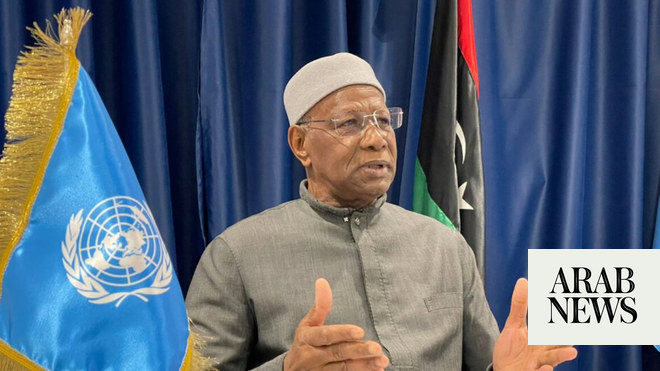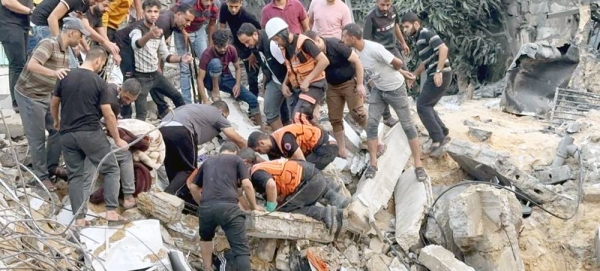
The organization’s envoy called on political leaders to act ‘in a spirit of compromise’ so the people of the country avoid such a ‘gloomy prospect’
Representatives from the two rival governments recently agreed draft legislation for holding elections but stopped short of actually signing a deal
NEW YORK CITY: Successful elections in Libya will require not only the establishment of a proper legal framework within which they can take place, but also a political agreement that ensures buy-in to the process from all stakeholders, the UN warned on Monday.
It came two weeks after a joint committee that included representatives of the country’s rival governments agreed the legal steps for holding elections by the end of the year but stopped short of actually signing a deal.
Presidential and parliamentary elections were supposed to be held in December 2021 but did not take place, amid persistent differences of opinion among political factions on a number of key issues, including who should be allowed to stand.
Speaking during a meeting of the Security Council to discuss the latest developments in the North African country, Abdoulaye Bathily, head of the UN Support Mission in Libya and special representative of the secretary-general for the country, vowed that he will continue to work to iron out the differences between the rival factions so that they can “reach a final settlement on the most contentious issues, make the draft laws implementable, and enable successful elections.”
The country remains split between the Government of National Unity, which is nominally an interim government in Tripoli in the west of the country, and a separate authority in the east, the Government of National Stability, which is backed by the self-styled Libyan National Army led by Gen. Khalifa Haftar.
During the recent negotiations in Morocco, representatives from both authorities agreed on draft legislation that calls for simultaneous presidential and parliamentary elections and addresses contested issues such as who is eligible to stand as a candidate, the requirement for a mandatory second round of voting in the presidential election even if one candidate secures more than 50 percent of the ballots in the first round, and a provision stipulating that if the first round of the presidential election fails, parliamentary elections will not take place. It also calls for the establishment of an interim, unified government tasked with organizing and conducting the elections.
Each side is said to be seeking legislation that would prohibit the other’s preferred presidential candidate — Haftar and Abdul Hamid Dbeibah, the Government of National Unity prime minister — from standing. One such point of contention is whether dual nationals and soldiers should be permitted to stand; Haftar is a soldier and holds US citizenship, and his critics accuse him of seeking to restore a military dictatorship in Libya.
“The eligibility criteria for presidential elections, the linkage between presidential and parliamentary elections, and the issue of forming a new unified government are highly contentious and require, first and foremost, a political agreement among the major stakeholders and key constituencies across the Libyan political spectrum,” said Bathily.
Short of such an agreement, the laws will not only remain impossible to implement, he added, they could also trigger a fresh crisis.
“To avoid that gloomy prospect for the people of Libya and the region, (the) main Libyan decision-makers must, acting in a spirit of compromise, put the greater interests of the Libyan people above all else and come to a political agreement on these matters,” said Bathily.
“Without such compromises, the contested issues are likely to take the electoral process into a cul de sac, like in 2021, resulting in further polarization and destabilization of the country.
“While we all endorse the principle of a Libyan-Libyan solution as a basis of any effective instrument for sustainable peace and stability, that catchword must not be a slogan to hide an agenda for prolonging the status quo at the expense of the Libyan people’s political rights and aspirations for legitimate institutions and prosperity.”
The envoy called on the Security Council to ramp up its pressure on Libya’s leaders and “use your collective and individual leverage” to ensure that they display the political will required to propel their country toward successful elections.
He urged council members to speak with one voice and remove “the spoilers out of the process toward Libya’s full recovery.”
Libya has endured more than a decade of conflict since the revolt that toppled former dictator Muammar Qaddafi in 2011, with a large number of militias formed opposing alliances backed by foreign powers.











